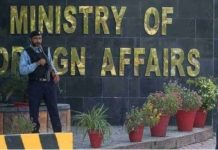Prof. Dr. Muhammad Suleman Tahir
SDGs stand for Sustainable Development Goals. They are a set of seventeen global goals adopted by the United Nations General Assembly in 2015 as part of the 2030 Agenda for Sustainable Development. The SDGs aim to address a wide range of social, economic, and environmental issues. The SDGs are designed to be universal, meaning that they apply to all countries and are intended to be implemented in both developed and developing countries. They are also interrelated, recognizing that progress in one goal can contribute to progress in other goals. The SDGs provide a framework for action by governments, businesses, civil society, and individuals to work together to achieve a sustainable future for all.
Zero Hunger, is one of the most important goals of the SDGs. Hunger and malnutrition are major global issues that affect millions of people, particularly those living in poverty. According to the United Nations, approximately 690 million people suffer from hunger, and an additional 2 billion people experience food insecurity.
Achieving Zero Hunger is critical for several reasons. First, it is a basic human right to have access to sufficient and nutritious food. Hunger and malnutrition can lead to stunted growth, weakened immune systems, and even death, particularly among children. Second, ending hunger can help to reduce poverty, improve health outcomes, and promote economic growth. When people have access to nutritious food, they are better able to work, learn, and contribute to their communities. Third, achieving Zero Hunger is essential for environmental sustainability. Sustainable agriculture practices, including reducing food waste and improving soil health, can help to protect natural resources and reduce greenhouse gas emissions.
To achieve Zero Hunger, a range of actions are needed, including increasing agricultural productivity, improving food systems, reducing food waste, and increasing access to nutritious food for vulnerable populations. This requires collaboration between governments, civil society, the private sector, and individuals.
To fulfill the needs of modern societies, the conversation of green lands into housing schemes can have a negative impact on achieving Zero Hunger. Green lands are important for agricultural production, as they provide space for crops to grow and for livestock to graze. When these lands are converted into housing schemes, it can lead to a loss of agricultural productivity and a reduction in the availability of nutritious food.
The conversion of green lands into housing schemes can also contribute to food insecurity, particularly for vulnerable populations. When land is used for housing, it may no longer be available for farming, which can lead to a reduction in food production and an increase in food prices. This can make it difficult for low-income households to access sufficient and nutritious food, leading to malnutrition and hunger.
To achieve Zero Hunger, it is important to prioritize the preservation of green lands for agricultural production. This can be done through the implementation of policies and regulations that limit the conversion of agricultural land into housing schemes. Additionally, efforts can be made to promote sustainable land use practices, such as agroforestry and conservation agriculture. Overall, it is essential to balance the need for housing with the need for agricultural land and to prioritize the achievement of Zero Hunger in all development efforts.
Pakistan is a country that faces significant challenges related to food security and zero hunger. The country has a large population, and a significant proportion of the population lives in poverty. In addition, climate change and environmental degradation pose significant challenges to agricultural productivity in Pakistan.
To address these challenges, it is important to prioritize the preservation of green lands for agricultural production in Pakistan. This can be done through the implementation of policies and regulations that limit the conversion of agricultural land into housing schemes. The government can work with local communities and stakeholders to identify areas of land that are suitable for development and those that should be protected for agricultural purposes.
In addition to preserving green lands, efforts can be made to promote sustainable agricultural practices in Pakistan. This includes investing in irrigation systems and improving soil health, which can help to increase agricultural productivity and reduce the impact of climate change on crop yields. The government can also promote the use of modern agricultural technologies and techniques, such as precision agriculture and conservation agriculture, which can help to reduce inputs and increase yields.
Finally, efforts can be made to ensure that vulnerable populations have access to sufficient and nutritious food in Pakistan. This can be done through the implementation of food assistance programs, nutrition education initiatives, and other policies and programs that promote food security. By prioritizing the preservation of green lands for agricultural production and promoting sustainable agricultural practices, Pakistan can take important steps toward achieving food security, zero hunger and improving the health and well-being of its population.
Prof. Dr. Muhammad Suleman Tahir
Vice Chancellor
Khwaja Fareed University of Engineering and Information Technology, Rahim Yar Khan, Pakistan












